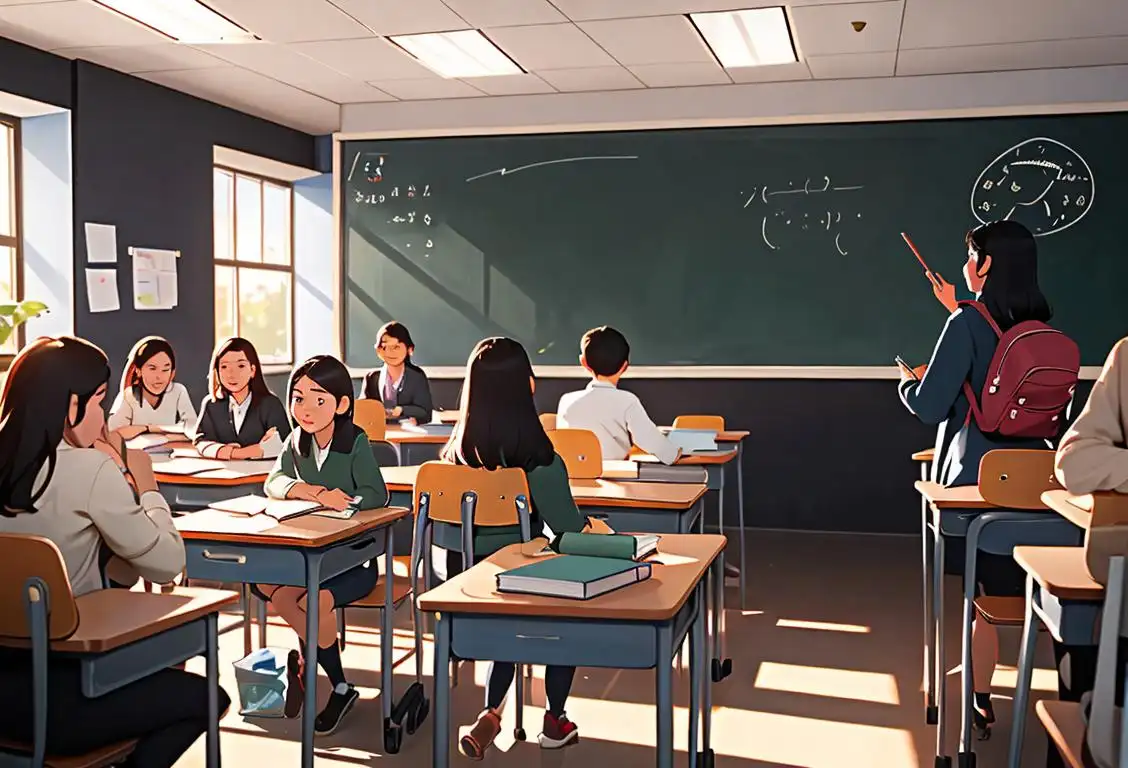National Summer Learning Day

Where did summer vacations go? Our long-awaited season of free time seems to be over before it even begins, right? Fear not, dear reader, as we pull back the curtain on a barely hidden gem - National Summer Learning Day!
When is Summer Learning Day?
It's national summer learning day on the 12th July.
What is National Summer Learning Day?
As crazy as it may sound, National Summer Learning Day is literally a day to celebrate learning during the summer. Whoa, right? Hit the brakes, brain, we're about to dive in.
The Story Behind the Day
First off, let's set the record straight - we're talking about the comfy, enjoyable kind of learning, not the 'Oh no, pop quiz!' panic-inducing kind. Since its 2009 inception, this day has aimed to curb the 'summer brain drain' phenomenon, where students lose many of the academic gains they made during the school year.
Propelling National Summer Learning Day's Popularity.
The spotlight shone brightest on this day on July 12, 2018, with a whopping 3477 mentions online. Imagine the whisper traveling through the internet, 'Hey, it's National Summer Learning Day!'. It speaks volumes about the importance people attach to continued education even during the beach-ball-tossing, ice-cream-savoring days of summer.
How to Celebrate?
Consider this day as an opportunity to rekindle a forgotten passion – dust off those guitar lessons you abandoned or delve into a captivating history book. Who knows, you may end up inventing a new ice cream flavor!
Why it Matters?
So, what's the big deal, you ask? Remember when you tried to start learning French again after the holiday break and found you’d forgotten every single verb conjugation you'd memorized? That’s summer brain drain in a nutshell, and National Summer Learning Day aims to put a stop to it. By encouraging fun and engaging education during the holidays, we keep our minds fit, like top-notch athletes training for the next school marathon. Smart, huh?
History behind the term 'Summer Learning'
1900
The Birth of Summer Learning
In the year 1900, the term 'summer learning' was first coined and made its way into educational discourse. As the traditional school year followed the agrarian calendar, where children were needed to help with farming during the summer months, this term was used to describe the educational activities and experiences that took place during the summer break. It emphasized the continued learning and skill development outside the classroom setting.
1922
Summer Learning as Remediation
By 1922, summer learning started to gain prominence as a means of remediation. Many students would experience a loss of academic skills during the long break, and summer learning programs emerged as a response to bridge this gap. The focus was to provide targeted instruction and support to students who were struggling, offering them an opportunity to catch up and strengthen their academic foundations.
1960
Enrichment Programs Take Center Stage
In the 1960s, summer learning shifted its focus towards enrichment programs. Recognizing that learning should be a continuous process and not solely based on remediation, educators and researchers began advocating for summer programs that offered diverse and engaging learning experiences. This led to the rise of educational camps, workshops, and activities that fostered creativity, exploration, and personal growth.
1980
Government Support and Funding
During the 1980s, summer learning gained increased attention and support from government entities. Realizing the importance of minimizing summer learning loss, various governmental organizations allocated resources and funding to develop and expand summer learning initiatives. This helped create more opportunities for students, particularly those from underserved communities, to participate in enriching summer programs.
2000
The Emergence of Summer Learning Research
As the 21st century dawned, research on summer learning started gaining momentum. Scholars and educational researchers began conducting studies to understand the impact of summer learning programs on academic achievement, skill development, and social-emotional growth. This research highlighted the significance of well-designed and high-quality summer learning experiences in preventing learning loss and promoting educational equity.
Present
Diverse Approaches and Continual Evolution
In the present day, summer learning manifests in various forms and approaches. Traditional academic-focused programs continue to address remediation needs, while others prioritize experiential learning, travel, volunteerism, and skill-building opportunities. Summer learning has become a vital component of comprehensive education systems, focusing not only on preventing learning loss but also fostering holistic development and lifelong learning.
Did you know?
Did you know that the 'summer slide' is a term used by educators to describe the learning loss that occurs when school is out? Hauntingly, some students could lose up to 2 months worth of math skills during summer!Tagged
awareness fun education summer growth learningFirst identified
18th June 2015Most mentioned on
12th July 2018Total mentions
3477Other days
Summer Learning Day
Numeracy Day
Education Day
Student Athlete Day
Teacher Appreciation Day
Punctuation Day
Mathematics Day
Bird Day
History Day
Grammar Day








